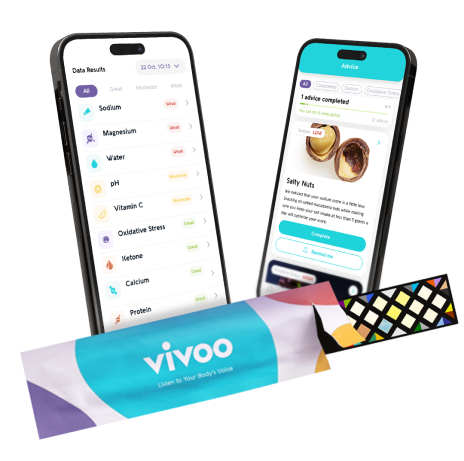PCOS is short for polycystic ovary syndrome, and is characterized by hormonal imbalances and metabolic disorders resulting in the development of cysts in the ovaries. PCOS is associated with a number of symptoms, including irregular periods, acne, weight gain, and excess hair growth. One of the best ways to manage PCOS is through dietary changes.
Research shows that people with PCOS have long-term inflammation, and 33-83% of women with PCOS are also overweight or obese. Common PCOS symptoms include:
- Irregular periods
- Acne
- Hirsutism (excessive hairiness)
- Male-pattern baldness
There are actually several types of PCOS, and one of the most common forms is associated with insulin resistance. In fact, research shows that more than 50% of people with PCOS develop diabetes or pre-diabetes before age 40. So why? If you have insulin resistance, your body tries to pump out high levels of insulin to keep your blood sugar levels normal. But because you cannot effectively use the insulin you produce, you end up with high insulin levels that make your ovaries produce more androgens, such as testosterone.
Insulin resistance may also be caused by having a higher body mass index. Insulin resistance accompanying PCOS can make it harder to lose weight, which is why people with PCOS often experience weight loss challenges.
Many people with PCOS reduce their risk of other health problems by making changes in their diet and lifestyle. Some research has shown that diet can help reduce the effects of PCOS on the body.
Eating the right foods and avoiding certain foods can help reduce inflammation, regulate hormones, and improve insulin resistance. But you may find that knowing what to eat if you have PCOS can be confusing, as there is a lot of conflicting information out there.
In this blog post, we'll explore what to eat if you have PCOS and provide some helpful tips on what to eat to manage your symptoms and improve your overall health.

How does diet affect PCOS?
Diet is important for regulating any disease, but it is especially important for managing PCOS. Diet can improve your quality of life and help you manage PCOS symptoms.
Two of the main ways that diet can affect PCOS is by helping you manage your weight and insulin resistance.
A diet high in refined carbohydrates, such as starchy and sugary foods, can make you insulin resistant and, therefore, create more challenges in losing weight if you have PCOS. Refined carbohydrates can cause inflammation, and exacerbate insulin resistance. That’s why you should limit foods like white bread, muffins, and sugary desserts.
In addition to these foods, processed foods can also contain ingredients like high fructose corn syrup which can also lead to inflammation and insulin resistance. This is why it’s important to read the food labels when you go shopping for your groceries. Keep an eye out for other ingredients similar to high fructose corn syrup that can cause inflammation, like sucrose.
Generally speaking, it’s important if you have PCOS to eat healthy foods and to avoid foods that cause inflammation, such as fries, margarine, red or processed meats, and sugary beverages.
What diet should I follow if I have PCOS?
There is no specific diet that can prevent or treat PCOS. But there are some general nutrition principles that can help improve PCOS symptoms. The general aim of these principles is to lose excess weight, improve cholesterol levels, correct insulin resistance, and reduce inflammation. These principles include:
Eating regularly
It’s no mystery why it’s important to eat regularly. But in summary, eating regularly helps you keep your blood sugar levels stable, which leads to reduced insulin resistance. Therefore, you should take steps to be conscious of the timing of your meals and how often you eat if you ARE trying to create a PCOS diet for yourself. Making sure that you have regular, varied, and balanced meals or snacks is a great way to start creating healthy habits if you have PCOS.
Having balanced meals
Balanced meals are important for your blood sugar. In fact, adding protein and fats to a meal with complex carbohydrates can reduce the impact of the whole meal on blood sugar levels. That’s why having a balanced plate that is made up of protein-rich foods, healthy fats, lots of fruits or vegetables, and high fiber can help reduce insulin resistance if you are trying to follow a PCOS-friendly diet. Balanced meals will also keep you feeling fuller for longer and reduce cravings.

Choose complex carbohydrates
Now when it comes to what to eat with PCOS in more detail, one of the most important rules to follow is to eat complex carbohydrates, such as whole grains. Eating foods containing complex carbohydrates can help improve insulin levels and reduce insulin resistance if you have PCOS. Whole grains contain lots of complex carbs, so it’s worth opting for whole-grain options of classic starchy foods like white bread or rice.
In addition to whole grains, following a diet filled with fresh vegetables and fruits that are rich in fiber, magnesium, calcium and vitamin C will help you manage PCOS symptoms. Research conducted over the years the vast majority of women with PCOS are not getting enough of these nutrients. If this is a problem for you, that’s where Vivoo can step in to help!
Vivoo is an at-home urine test that tracks your body’s wellness based on your body’s levels of calcium, magnesium, vitamin C, and other wellness parameters. The Vivoo App provides you with personalized nutritional and lifestyle advice based on your results to help you improve your wellness. This is why Vivoo can be a helpful personal assistant to help you improve your PCOS symptoms. Plus, it's quick and easy to use – you can get your results in just 90 seconds!
Eat omega-3 fats
Besides whole grains and high-fiber foods like vegetables and fruits, how about oily fish? Oily fish are rich in omega-3 fats, which can help lower inflammation that is common for those with PCOS. For this reason, try having one to two portions of oily fish a week. You can also include other plant-based sources of omega-3 fats such as seaweed, algae, chia and flax seeds, and walnuts if you’re trying to follow a PCOS diet.
Have anti-inflammatory foods
Most people with PCOS have elevated levels of chronic inflammation. For this reason, adding foods that are rich in antioxidants can help you reduce inflammation if you’re following a PCOS diet. These foods include:
- Berries
- Green tea
- Tomatoes
- Kale
- Spinach
- Almonds and walnuts
- Olive oil
- Turmeric
Lose excess weight
If you are overweight, losing weight can help improve PCOS symptoms. At the same time, it’s important to note that it is easier said than done if you have PCOS considering the other symptoms, however, we know this can be challenging for many people with PCOS. Insulin resistance, food cravings, and binge eating can make weight loss with PCOS hard.
If you are trying to lose weight and have PCOS, it’s important not to follow restrictive diets. Consult a dietitian instead who can help you tailor a diet specific to your needs and circumstances. But if working with a dietitian is not a possibility, it’s important to focus just on what foods you include in your diet. All the advice above about whole grain foods, omega 3s, and anti-inflammatory foods are a good place to start. The most important thing is developing a diet that suits your lifestyle without missing out on important foods or nutrients.
And if you are trying to get pregnant and have PCOS, it is particularly important that you get enough nutrients and that you take a folic acid supplement. Speak to your doctor or dietitian about this.
So here are a few steps that you can take to start developing your own version of a PCOS diet. At the end of the day though, the most important thing is that you follow a healthy diet that suits your lifestyle without missing out on any important foods and nutrients. With time, following a more PCOS-friendly diet will help you in managing symptoms of PCOS.









